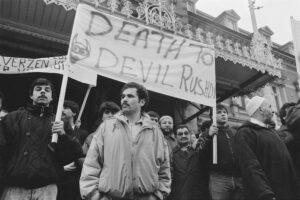Pfizer buys up rival Pharmacia
The world's largest pharmaceuticals firm, Pfizer, has agreed to acquire rival US drug company Pharmacia for a reported €52.5 billion in stock, raising speculation that the fragmented industry will be seized by merger mania.
Pfizer said the merger with Pharmacia was aimed at consolidating its global market lead, reducing costs, boosting its research capability, stimulating growth and diversifying its portfolio. The new company will have a combined R&D budget of €7 billion in 2002 and annual revenues of more than €48 billion.
“This is an extraordinary opportunity to combine two of the fastest-growing and most innovative pharmaceutical companies and to position Pfizer for sustained long-term leadership of the global pharmaceutical industry,” said Hank McKinnell, chairman and chief executive officer of the company which makes anti-impotence drug Viagra.
The Pharmacia deal gives the drugs giant ownership of the anti-arthritis treatment Celebrex, which McKinnell hopes will help Pfizer gain pole position in Europe, Japan and Latin America. However, in a late twist, the European Medicines Evaluation Agency (EMEA) has been asked by French health authorities to re-examine claims that Celebrex causes less intestinal side effects than cheaper anti-inflammatory drugs. This follows recent evidence that Celebrex and similar drugs may be linked to an increased risk of heart attacks.
The EMEA was expected to announce the safety review today (25 July) and can withdraw the drug if it finds the risk of taking it is greater than any benefit. This could seriously affect the success of the merger. The deal had already met with mixed reactions from analysts. Some view the merger as a welcome step in a fragmented industry dogged by intensifying competition from generic firms, political pressures to produce low-cost drugs and lengthening product development cycles.
Others suggest the new giant will start a merger bubble in the industry as other firms play catch-up. The financial world reacted to news of the mega-deal by pushing Pfizer shares down by 20% to a four-year low.
________
This article first appeared in the 25-31 July 2002 edition of The European Voice.


